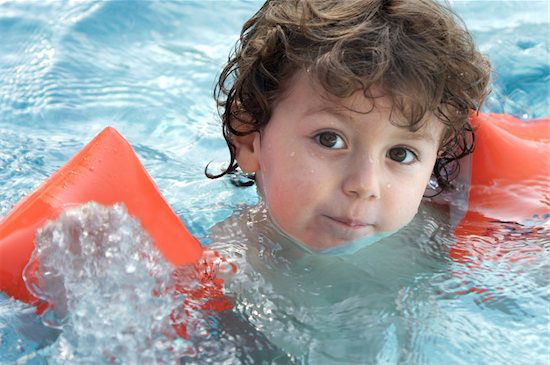Use Diligence to Keep Children Safe around the Water
 Memorial Day has passed, temperatures are rising and the school year is rapidly coming to an end. This is the time of year when attention turns to summer vacations and, for many, that means taking to the water. Whether you plan to enjoy the beach, a lakeside resort or your own backyard oasis, it is important to take precautions to prevent accidents that can turn your summer vacation into a tragedy.
Memorial Day has passed, temperatures are rising and the school year is rapidly coming to an end. This is the time of year when attention turns to summer vacations and, for many, that means taking to the water. Whether you plan to enjoy the beach, a lakeside resort or your own backyard oasis, it is important to take precautions to prevent accidents that can turn your summer vacation into a tragedy.
The U.S. Consumer Product Safety Commission (CPSC) recently released disturbing statistics relating to children and water-related accidents. Based on data collected over the past three years, an average of 390 children under 15 drown every year, including 296 children younger than 5. During that same time, hospital emergency rooms treated about 5,100 children for injuries suffered from being submerged in the water; 4,000 of them were under 5. (1)
Despite these statistics, an overwhelming number of people (63%) polled by the American Red Cross admitted they would take their families swimming in unguarded waters this summer. Almost 50% of those polled never had swimming lessons. A majority of those surveyed also said they believed the use of “water wings” (inflatable bands worn around the arms) or the buddy system were adequate substitutions for adult supervision of children in the water. (2)
According to the CPSC, drowning is the major cause of accidental deaths of children in the 1 to 4 year age group. The CPSC also disclosed that about 85% of water-related deaths of children under 5 and about 50% of water-related injuries for that same age group occur in private backyard pools. (1)
Homeowners have an obligation to prevent accidental drowning or injuries on their property. New Jersey has regulations regarding enclosures for private pools. Pools must be fenced in such a way as to prevent children from entering the area unsupervised. These regulations include, among other things, restrictions on the height of a fence, spacing and location of the rails, and security and functionality of the gate access. Often these restrictions will be stipulated in the permits obtained from local municipalities before installing your pool. (3)
There are a variety of safety precautions you can take to avoid becoming a statistic. Organizations such as the Red Cross and the YMCA urge people to educate themselves on water safety. The Y, as well as other health clubs and private schools, offers swim classes for children of all ages and adults. There are also classes available through agencies like the Red Cross designed to train people on what to do in the event of a water emergency. (4)
Diligence and common sense, along with adherence to local regulations, can help us keep our children safe this summer as they beat the heat with a refreshing dip in the water.
(1) http://money.msn.com/home-insurance/article.aspx?post=77ee4423-a758-4152-bbfe-5b5f87006127
(2) http://nj1015.com/stay-safe-swimming-this-summer-audio/
(3) http://www.njleg.state.nj.us/2010/Bills/S1500/1278_I1.HTM
 New Jersey Family Law Blog
New Jersey Family Law Blog


